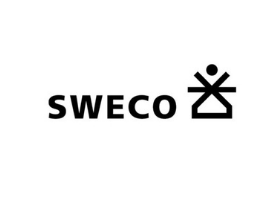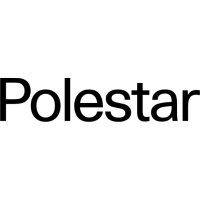
Sander Schimmelpenninck is a key figure in the Netherlands, with thought-provoking weekly columns in de Volkskrant and 200,000 people following him on X. As an influential opinion maker and media entrepreneur, Sander provides a fresh lens on Dutch culture. Currently, Sander lives in Gothenburg and has formed a personal perspective on Swedish culture. In a conversation with Swedish Chamber Insights, Sander shares three personal reflections on the contrasts between Sweden and the Netherlands.
Navigating cross-cultural business relations
When asked about the cultural distinctions between Sweden and the Netherlands, Sander instinctively thinks of one of the most frequently mentioned characteristics of the Dutch people: their directness. Sander acknowledges the challenge of avoiding this well-worn stereotype yet contends that it remains one of the most unmistakable differentiators between Swedish and Dutch communication styles. From his Dutch perspective, he finds the Swedes to be notably indirect:
“I need to be careful with what I say, both on a personal and on a professional level” he says with a smile. “Swedes are not used to the assertiveness of Dutch people, and they might interpret it as arrogant and confronting”.
However, the Dutch never mean to be insulting, but simply communicate in a straightforward way to be more efficient – and Sander explains:
“In Sweden, you invest a lot more time in building relationships and small talk. I remember when I was getting my mortgage at the bank and had to spend one and a half hours listening to this bank guy’s stories about his holiday and his kids before I finally got to hear about the interest rate I was supposed to pay. In the Netherlands, you just get an email with the interest rate – take it or leave it. It is very different.”
Sander recommends Dutch people take their time and stay patient when investing in business relationships with the Swedes.
Comparing Swedish & Dutch lifestyle & wellbeing
Earlier this fall, Sander was the moderator of the annual #NordicTalks, which is a collaboration between the Nordic Embassies and the Nordic Chambers of Commerce in the Netherlands, highlighting topics of common interest through annual events. This year, the theme was “Friluftsliv – The Great Impact of Nordic Outdoor Life on Health”. Sander felt inspired by the discussions that took place:
“I already knew that nature is a crucial element in the attraction of Scandinavia, but I was very interested to hear about the cultural heritage of ‘friluftsliv’. In some ways it felt unfair to compare the Nordics with the Netherlands, as the Netherlands simply has much less nature. I always take pride in the Dutch biking culture, but after #NordicTalks, I realize that commuting by bike in the stressful Dutch traffic is not really ’friluftsliv’. As Dutch, we might be a bit too focused-on efficiency. Biking to work is fine of course, but it really isn’t ‘being out in nature’.”
Despite the many benefits for physical, mental, and organizational health that the routines of Nordic ‘friluftsliv’ has proven to have, Sander interestingly tells that one of the few big indexes in which the Netherlands usually do better than Sweden is in fact: happiness. According to Sander, Swedish people take themselves more seriously, which can make it harder to connect with others:
“The Dutch are on average happier than Swedes. Swedes seem to feel lonelier and have a harder time connecting or making new friends, which usually comes easier to more Southern Europeans. There even seems to be a connection between climate, trust in government and wellbeing – the colder it gets, the higher the trust in government and stronger the state, but also the more difficult it is to connect and have a happy social life. If there is one thing Swedes can learn from the Dutch, it is to loosen up”.
The new Walhalla podcast: Sweden versus the Netherlands?
To delve deeper into the societal distinctions between Sweden and the Netherlands, Sander has recently launched his latest podcast project, Walhalla, in collaboration with Swedish journalist and author Charlotte Boström. The podcast thematically explores comparisons between the two countries, using Sander’s experience of becoming a dad as the focal point:
“The question of the podcast, as a fun exercise for comparing the two countries, t is what passport I should give to my newborn daughter. We want the podcast to be interesting to a broader audience than just Swedes and Dutch. In the podcast, we discuss progressive and liberal politics with the ambition to make it interesting to a broader audience than just Swedes and Dutch. It is a lot of fun, especially since I think I am romanticizing Sweden more than Charlotte thinks is justified – she thinks I behave like a Swedish fanboy. Vice versa, she is very positive about many things in the Netherlands, and then it is my job to be critical about my own home country.”
In every episode, the podcast will explore and determine the winning country based on the selected theme. Some of the areas explored are gender equality, education, trust in government, and equal opportunities. One topic examined in the podcast which Sander feels especially passionate about is segregation:
“Immigration and segregation are big topics in both Sweden and the Netherlands. I believe that the Netherlands is in a better place than Sweden in this area right now. We have more policies in place that ensure how people can integrate, whether that is through housing, education, or something else. Also, I think that the Netherlands, being a flat country with a big population, means that we cannot afford to live in secluded or segregated areas. There is simply no space to avoid each other in the Netherlands. In Sweden, you can physically hide – and that is what I believe that people do”.
By Alexandra Gummesson for Swedish Chamber Insights































